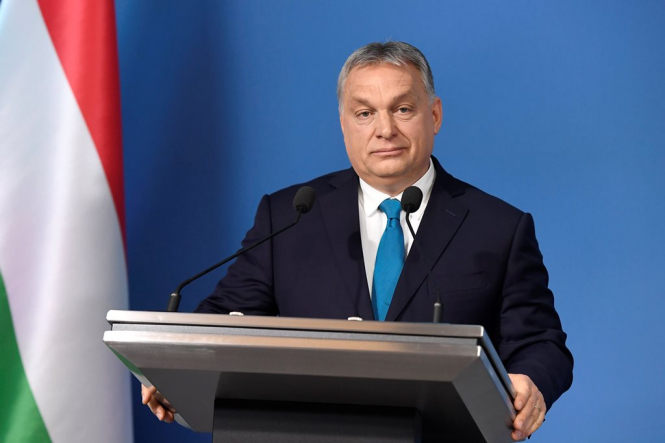Orbán wants to change the balance of power in the EU: how does this threaten Ukraine?
28 October 09:57
Hungary has begun to form a political alliance in the EU that could limit support for Ukraine. Prime Minister Viktor Orban is trying to unite the Czech Republic and Slovakia into a bloc that will promote an “anti-war” policy and oppose military and financial aid to Kyiv. This was stated in an interview with Politico by the chief political adviser to Prime Minister Viktor Orban, his namesake Balazs Orban, "Komersant Ukrainian" reports
Who will join the new alliance
Hungary – the initiator, which has been blocking EU decisions in favor of Ukraine for several years.
Slovakia – Prime Minister Robert Fico is skeptical of sanctions against Russia.
Czech Republic – populist Andrej Babiš won the election and supports the idea of “negotiations with Moscow.”
Poland, which used to be a member of the Visegrad Four, is now fully pro-Ukrainian and will not join the bloc.
Why does Orban need a new alliance?
The goal is to create an influence group in the EU that will:
- block decisions on military aid to Ukraine;
- oppose sanctions against Russia;
- gain negotiating power to put pressure on Brussels to unfreeze funds for Hungary.
Orban also seeks to expand cooperation in the European Parliament with right-wing and eurosceptic forces.
The goal of such an alliance would be to coordinate positions before meetings of EU leaders and hold joint consultations before summits, in particular, on aid to Ukraine.
“I think it will happen and it will become more and more visible. It worked well during the migration crisis – that’s how we were able to resist,” Orban emphasized, commenting on the possibility of creating a bloc of countries skeptical of Ukraine in the European Council.
He also recalled the cooperation of the Visegrad Four countries (Hungary, Czech Republic, Slovakia and Poland) in 2015, when the Eurosceptic Law and Justice party was in power in Warsaw.
Watch us on YouTube: important topics – without censorship
Then-Prime Minister Mateusz Morawiecki led the initiative as the largest member of the alliance, and the V4 group promoted pro-family policies as well as strong external borders for the EU and opposed any mandatory movement of migrants between member states.
The Visegrad Four split after Russia’s full-scale invasion of Ukraine, with Poland taking a tough stance against Moscow and Hungary taking the opposite position.
How this will affect Ukraine
Although a strong political alliance is still a long way off, its formation could significantly hamper the EU’s efforts to provide financial and military support to Ukraine.
How this threatens Ukraine:
- Slowdownin financial aid – the new bloc could block support packages.
- Strengthening of pro-Russian narratives in the EU.
- Weakening of the EU’s political unity on Ukraine.
Orban’s internal motives
Orban goes to the polls and uses the “anti-Ukrainian card” to mobilize the electorate. His rating is falling, and the opposition in Hungary is gaining strength.
What they say in Brussels
The European Commission states that the measures against Hungary are not related to politics, but to the violation of the law.
In response, Orban speaks of “EU interference in internal affairs.”
Read us on Telegram: important topics – without censorship









